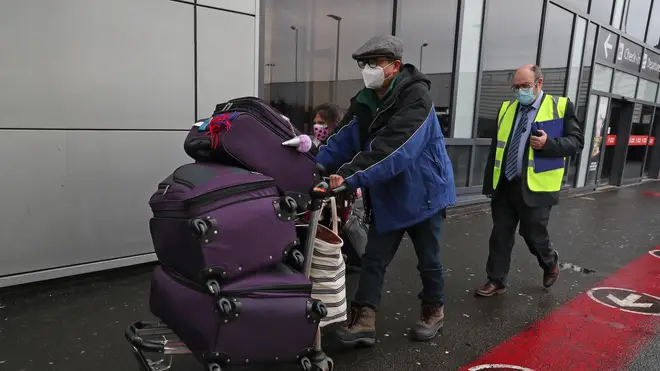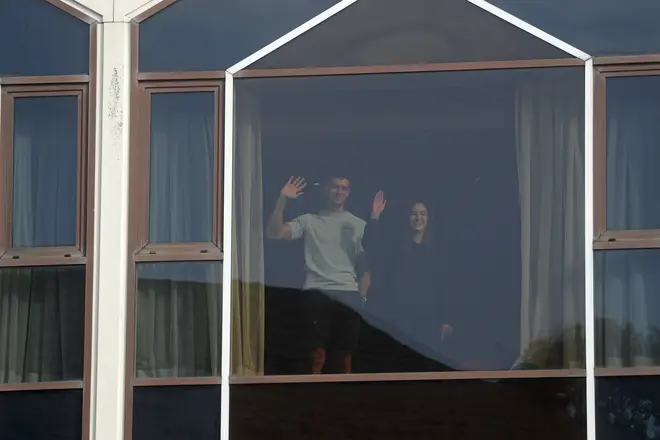
Clive Bull 1am - 4am
16 February 2021, 12:34

Travellers in quarantine hotels face an additional £1,200 bill if they test positive for coronavirus during their stay, it has emerged.
The fee is on top of the £1,750 fee for entering the programme and will apply to guests required to extend their stay beyond the initial 11 nights.
Information about the £152 daily cost of longer stays was only published on the Government's website on Monday, after some guests had already checked in.
From 4am on Monday, travellers arriving in England must quarantine in a hotel if they have been in a country at high risk of coronavirus variants in the previous 10 days.
Scotland is extending the requirement to cover arrivals from any country unless they have travelled from the Common Travel Area (CTA), which includes the UK and Ireland.
Read more: PM: Vaccine passports for foreign travel 'in the mix' but you won't need one for pub trips
Read more: Covid jabs 'reducing deaths, hospital admissions and transmission', early data shows

'Bespoke arrangements' must be made for children in hotel quarantine
A positive result from the first test will extend a traveller's stay by two nights at a cost of £304.
If the second test returns a positive reading, the guest must remain in their room for an additional eight nights and pay £1,216.
Prime Minister Boris Johnson was asked at Monday's Downing Street press conference what will happen if a traveller cannot afford the extra fee.
He replied: "It is currently illegal to travel abroad for holidays anyway.
"We would expect people who are coming in from one of these red list countries to be able to cover their costs."

One traveller quarantining at the Radisson Blu Edwardian hotel near Heathrow Airport said he was "feeling sad" at the prospect of isolating for 11 nights.
Speaking over the phone, delivery driver Roger Goncalves, 23, who lives in London, said: "I did my test for coronavirus. The test was negative. Why do I need to stay in my room?"
He explained he had tried to fly back from Brazil last week - before the requirement to quarantine in a hotel was in place - but his airline cancelled his flight.
He described the £1,750 cost of staying in the hotels as "crazy".
Asked how he will spend the time in his room, Mr Goncalves said he would "watch TV, watch Netflix".
Another traveller who checked into the hotel on Monday was Zari Tadayon, 66, from north London, who had been in Dubai to attend to "legal matters".
She said: "I feel horrible because I live here, I have my own individual home, and also I have some medical issues which I was hoping they would consider that.
"How I'm going to cope I don't know. It's going to be tough. I'm not prepared. I didn't bring books and stuff."

First 'red list' arrivals leave Heathrow
There are 33 countries on the Government's "red list", which includes Portugal, the United Arab Emirates, South America and southern Africa.
UK and Irish nationals and UK residents returning to England who have been in a country on the list in the previous 10 days must enter a quarantine hotel, even if they have travelled via the CTA.
Scotland's exemption for people travelling from the CTA led to a father and daughter who entered the programme on Monday being allowed to leave after just one day and complete their isolation at home.
Scottish First Minister Nicola Sturgeon has expressed concern about gaps in the current system for international arrivals, telling a coronavirus briefing in Edinburgh on Monday: "It would be better if we had that four nations approach, or at least a three nations approach where the border of the island that Scotland, England and Wales share, had the same provisions in place."